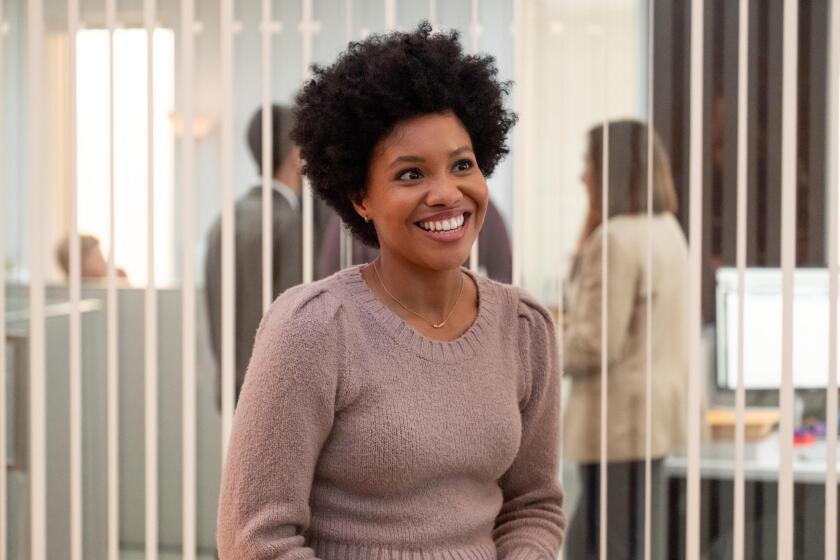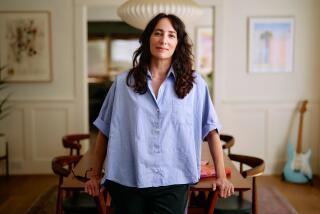Zakiya Dalila Harris’ life inspired ‘The Other Black Girl.’ Why she had to cut the cord
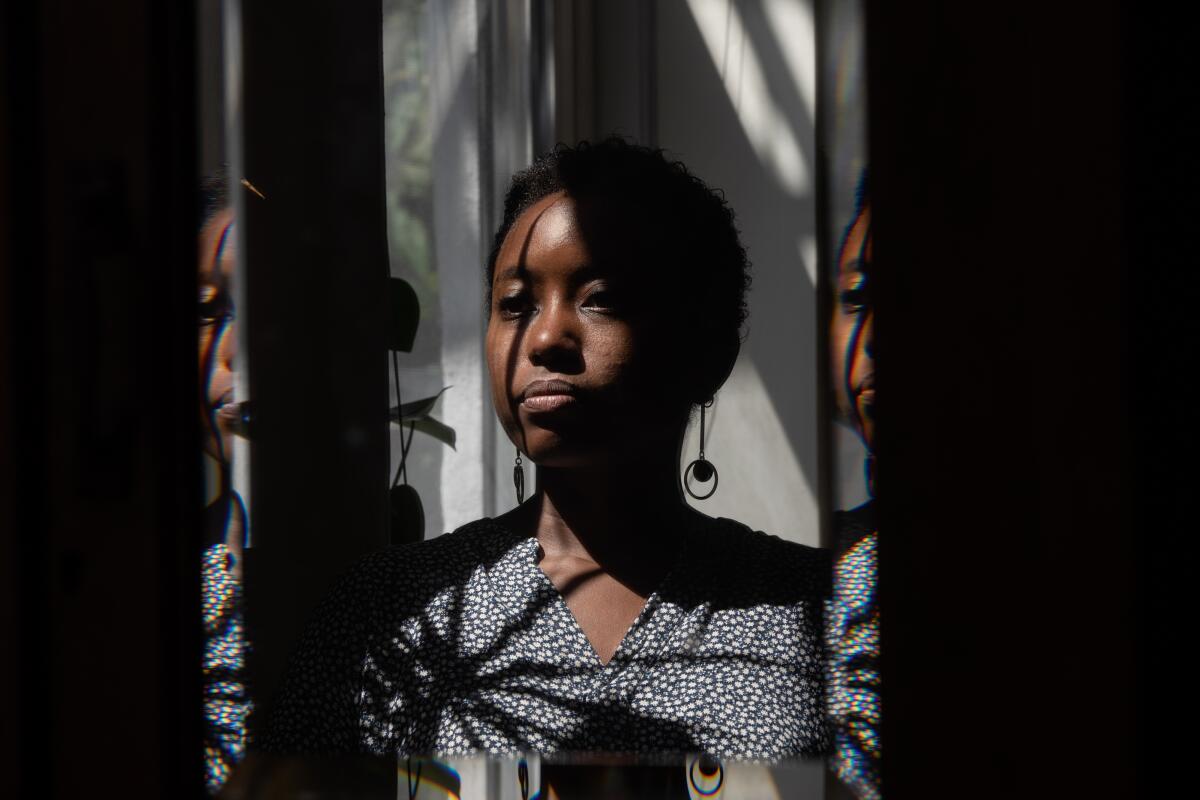
BROOKLYN, N.Y. — Four years ago, Zakiya Dalila Harris quit her job as an editor at Knopf Doubleday to do something that, at the time, even she thought was crazy: write a novel.
And not just any novel, but one that skewered the supposedly enlightened book business through the eyes of a young Black woman stuck in a low-level assistant job at a prestigious, overwhelmingly white publishing house.
To make it possible, Harris and the boyfriend she’d been dating for less than a year began living together in a studio apartment in Midwood, a far-flung Brooklyn neighborhood. Over the course of a frantic summer, in between shifts at a cupcake shop and a creative writing workshop for kids, she finished a draft.
“It’s insane. I don’t know who that person was,” recalled Harris, over the din of street sweepers on a sweltering early September morning in Park Slope. “I was very desperate, and so tired of publishing.”
The desperation didn’t last long: Her debut novel, “The Other Black Girl,” a creepily satirical, zeitgeist-capturing thriller aptly described as “The Devil Wears Prada” meets “Get Out,” sparked a 14-way bidding war, sold to Atria for a reported sum of more than $1 million, became a bestseller, and received ecstatic reviews when it was published in 2021. (The Times called it a “perceptive exploration of racism in publishing, wrapped up in a whip-smart story of young women at war in the workplace.”)
Naturally, Hollywood also came calling: before Harris had even handed in final edits on the manuscript, an adaptation was in the works at Hulu. On Wednesday, “The Other Black Girl” — a 10-episode series developed by Harris and Rashida Jones and produced by the Onyx Collective, Disney’s diverse storytelling division — premiered on the streaming service.
“I’m in a very small, privileged group of writers who’s not only gotten something adapted within like, three years — which is crazy — but also, I was part of it. It’s on a whole other level.”
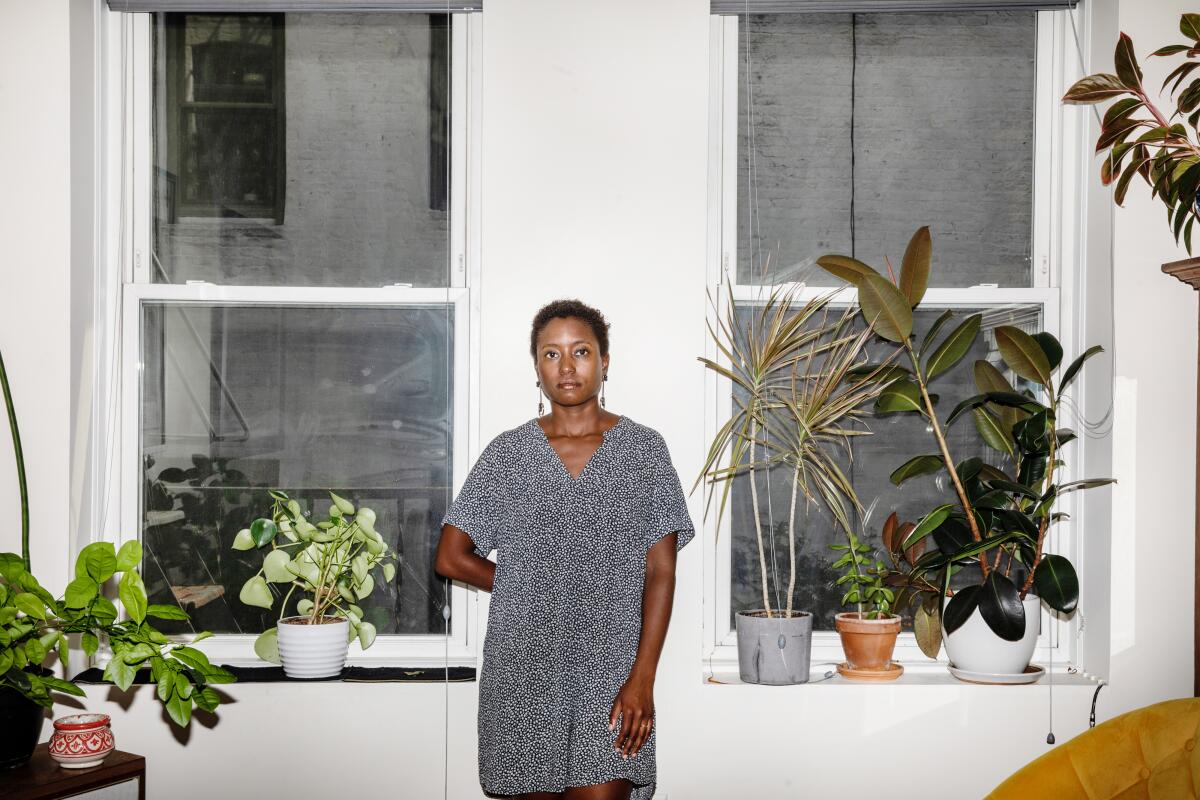
The series stars Sinclair Daniel as Nella Rogers, who has toiled away for two years as an assistant at Wagner Books, a Manhattan publishing house, where she is surrounded by white colleagues — circumstances that Nella, raised in the Connecticut ‘burbs, knows all too well. Already frustrated by her lack of career momentum, Nella is further demoralized when she raises concerns about a grossly stereotypical Black character in an upcoming book by one of Wagner’s bestselling (white, male) authors, only to be silenced by her high-strung boss, Vera (Bellamy Young).
Nella is also haunted by the mysterious fate of Kendra Rae Phillips, the first Black female editor at Wagner in the 1980s, who collaborated with another Black woman, Diana Gordon (Garcelle Beauvais), to create Nella’s favorite book, “Burning Heart” — then seemed to vanish without a trace.
Based on the book by Zakiya Dalila Harris, this comedy, horror and mystery series on Hulu examines the realities of racism and sexism in the workplace.
So Nella is understandably ecstatic when she learns that another Black woman, Hazel-May McCall (Ashleigh Murray), has been hired at Wagner — even if Hazel, with her Howard degree, Harlem roots and seemingly “authentic” Blackness, stirs both admiration and inadequacy in her. The women bond over their shared experiences (and mutual love of “Burning Heart”) but Nella quickly grows wary of her seemingly perfect new colleague. Her concerns multiply when she receives a note telling her, “Leave Wagner now.”
“I’m really proud of it,” said Harris, sitting outside a cafe where the baristas greet her with a familiar wave. “I think readers will really be excited about the changes we made — and the changes we didn’t make.” Still, the editor in her head can’t help but be nervous. “I know I’m oftentimes more vocal about shows I don’t like than I am about books. So I’m just bracing myself for that.”
No doubt some of Harris’ anxiety stems from her deep connection to the series’ protagonist.
Like Nella, Harris grew up in Connecticut and had literary aspirations from a young age. Storytelling was in her DNA: her father, Frank Harris III, is a journalism professor and former columnist at the Hartford Courant. Her sister is writer and critic Aisha Harris, who hosts an NPR podcast and provoked the rage of Megyn Kelly with a piece questioning why Santa Claus was assumed to be a white man.
Harris fondly recalls how her father would always be grading a stack of papers or jotting down ideas on paper and how, as a family, “we’d come up with stories on our way to karate class and piano lessons.” In an early experiment in self-publishing, Harris would write and illustrate books using stacks of printer paper. (She still has one of them, called “Aren’t You Tired Yet?”)
After studying English literature at the University of North Carolina at Chapel Hill, she applied to a fiction writing program at the New School in New York. She was wait-listed, but was admitted to the nonfiction program. It turned out to be a blessing in disguise: she took a class with the poet and activist Hettie Jones, who liked her writing, urged her to consider a publishing career and helped make some introductions.
By the fall of 2016, not long after she completed her graduate studies, Harris started as an editorial assistant at Knopf Doubleday, long known for its literary fiction. “I was happy because I had insurance. I had great roommates. I was living the young professional life,” she said.
But the bubble quickly burst.
“And then I was like, ‘OK, publishing is a lot.’ I loved the idea of getting to be an editor and acquiring my own titles. But at the time, it didn’t feel like you could move up and have your own kind of agency for a very long time.”
She wrote book reviews on the side, did some ghost-writing, and chipped away at another ambitious novel that remains unfinished. Then one day in the office bathroom, she ran into a Black woman she’d never seen before. Harris was thrilled — but also immediately wondered who the woman was and why she suddenly seemed to materialize from nowhere.
The encounter, though fleeting, lingered in her mind. “I was just thinking about, ‘Why was I so excited?’ And then the what-ifs. Like, what if she’s a robot? Then I got the idea for this book, and just ran with it.”
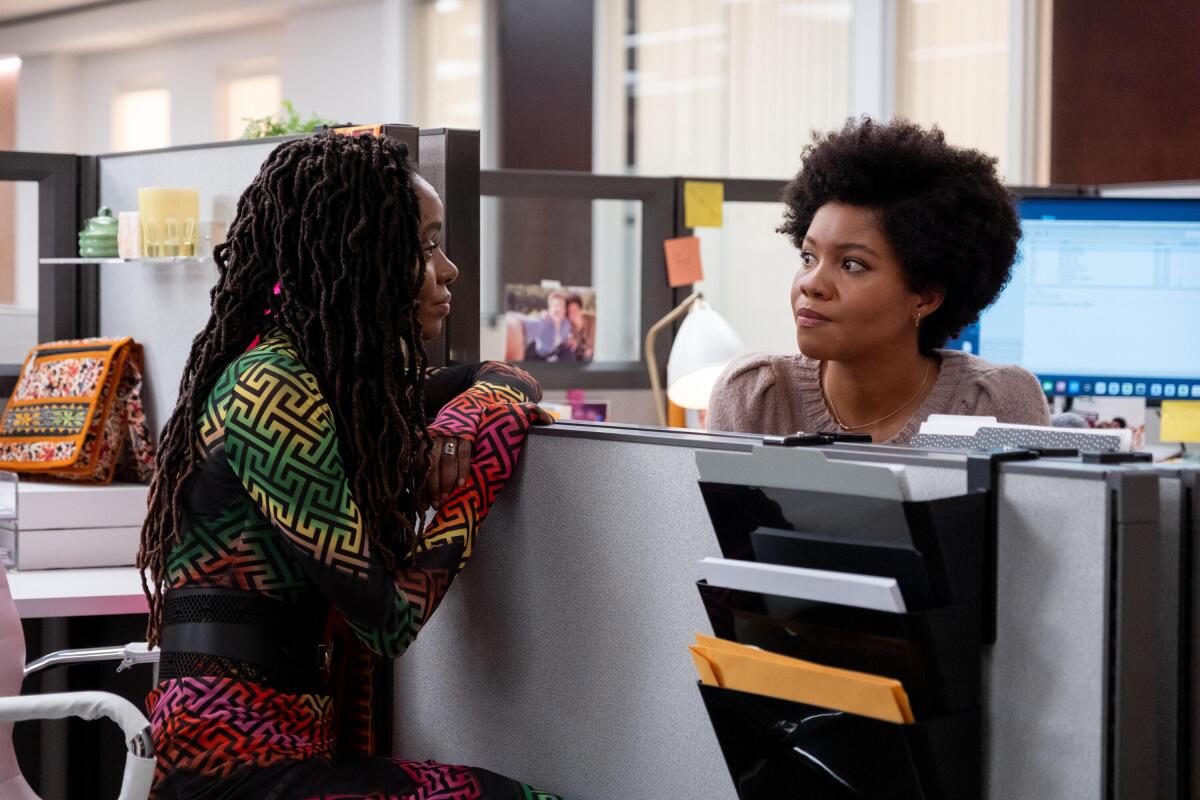
She started writing what would become “The Other Black Girl” in longhand, on Knopf stationery — something that helps her be less critical, she said — during quiet moments at her cubicle. (In the book, Nella is alerted to Hazel’s presence by the sudden smell of cocoa butter wafting in the air.) Within a few months, she quit her job. Working at a creative writing program for children that summer also helped fuel her.
“Being around kids who are just starting out brought me back to what writing was like pre-capitalism for me, where it’s just the pure thrill of it,” she said.
She was revising the book and thinking about the adaptation in 2020 as George Floyd’s murder sparked protests across the world and racial reckonings in countless powerful institutions and industries — including, yes, the book business. While the book “already had the message of the commodification of Blackness and performative wokeness,” she said, the cultural climate only gave her more fodder.
“2020 wasn’t the first year, obviously, we’ve had police shootings or people just going rogue against Black people. But I do feel like 2020 really made me home in on this part of my manuscript where Nella is really reflecting on her existence in this space. Even the moments where Nella is sitting at her desk, thinking about instances of police brutality and how hard it is to have to turn off that knowledge of what’s going on in the world when you go to the office.”
In addition to co-writing the pilot, Harris was part of the writers room, made up predominantly of people of color (as was the directing team). “I remember very much at the beginning, talking with the room about what we all wanted to see in the series and also our own personal experiences in the workplace with bosses who are annoying, but also with another Black person who wasn’t looking out for us.”
The writers often probed deep into Nella’s psychology, and, to Harris, it sometimes felt intensely personal — “like a therapy session for this character that isn’t totally me,” she said. “But, very much like her, I have anxieties about not being Black enough, about not being as cool as Hazel. Those are all versions of like fears that I had as a younger person.”
She eventually sat down with Danielle Henderson, who was then the showrunner, to explain why she felt blocked and needed to change her relationship to the character: “‘I’m cutting the cord. I’m giving birth to this thing. And I’m passing it on,’” she said. “I am still very close to the book. But I had to very quickly divide myself from the character of Nella.”
Still, there were other surreal moments — as when Harris visited the show’s Atlanta set and saw meticulously realized versions of the Wagner Books office and the cramped Brooklyn studio Nella shares with her boyfriend. “We’re playing with an idea that I came up with in my studio apartment. And now there’s a costume team devoted to outfits for these characters, who are now real people,” she said.
Harris cites an eclectic array of influences on the series, from “Night of the Living Dead,” “The Stepford Wives,” “Key & Peele” (especially the sketch about an a capella group that already has a Black guy), “Rosemary’s Baby,” and the novel “Passing” by Nella Larsen.
Most of the changes to the series are minor. We see more of Nella’s life outside the office, including her boyfriend Owen (Hunter Parrish) and best friend, Malaika (Brittany Adebumola). And a pivotal plot point involving a surprisingly powerful form of hair grease is introduced earlier in the story.
Perhaps the biggest change involves the ending. While the book version of “The Other Black Girl” ends on what can only be called a down note (“I am a morbid realist,” Harris said of the divisive conclusion), the Season 1 finale is more ambiguous, leaving the door open to interpretation — and a possible Season 2.
“That’s the hope,” said Harris, who is currently at work on a second novel and hopes to do more screenwriting once the writers’ strike is over. “I’ve definitely imagined a world beyond the end of the book.”
More to Read
The complete guide to home viewing
Get Screen Gab for everything about the TV shows and streaming movies everyone’s talking about.
You may occasionally receive promotional content from the Los Angeles Times.
